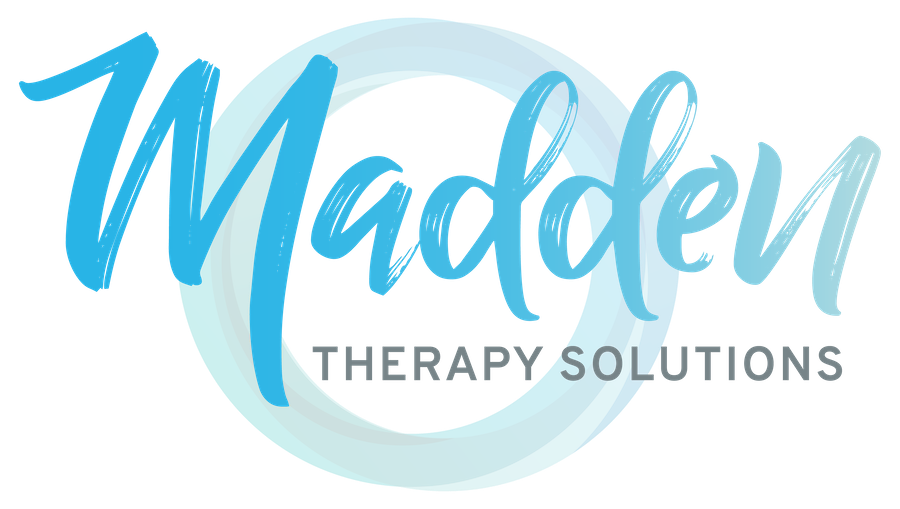Introducing your baby to solid foods is such an exciting milestone in their developmental journey! This new phase opens up a world of tastes, textures, and fun mealtime experiences. Watching your little one explore and enjoy new foods can be incredibly rewarding, but it also comes with its own set of questions and uncertainties. Rest assured, we’re here to help guide you through this important transition with expert advice and support.
We know that figuring out when your little one is ready for this transition can feel a bit overwhelming. At Madden Therapy Solutions, we deeply understand the importance of timing and readiness in making this a positive experience for both you and your baby. Here’s a feeding therapist’s perspective on recognizing the signs that your baby is ready to start solids.
1. Age and Developmental Readiness
Most babies are ready to start solid foods around 6 months of age. At this stage, their digestive systems have matured enough to handle solids, and they are likely to have developed the necessary motor skills. However, age alone is not the only indicator; it’s crucial to observe your baby’s unique developmental signs.
2. Increased Interest in Food
One of the most apparent signs is your baby showing interest in what you’re eating. If they watch you intently during meals, try to grab food off your plate, or mimic chewing motions, these are strong indicators that they are curious about solid foods.
3. Ability to Sit Up with Minimal Support
Your baby should be able to sit up with little to no support before starting solids. This ensures they have the necessary head and neck control to swallow food safely. A stable sitting position helps prevent choking and allows them to focus on the new textures and tastes they are experiencing.
4. Loss of the Tongue-Thrust Reflex
The tongue-thrust reflex, which causes babies to push food out of their mouths, diminishes around 4 to 6 months. When this reflex fades, your baby will be better able to move food to the back of their mouth and swallow it efficiently.
5. Improved Hand-to-Mouth Coordination
Babies ready for solids often display improved hand-to-mouth coordination. If your little one can grasp objects and bring them to their mouth with relative ease, it shows they have developed the fine motor skills necessary for self-feeding.
6. Hunger Between Milk Feedings
If your baby seems unsatisfied after breastfeeding or bottle-feeding and shows signs of hunger more frequently, it might be time to introduce solids. This additional nutrition can help meet their growing energy needs.
7. Curiosity About Different Textures and Flavors
Babies who are ready for solids often show curiosity about different textures and flavors. They might open their mouths eagerly when offered a spoon or enjoy playing with food, exploring it with their hands and mouths.
Tips for a Smooth Transition
- Start with Simple, Single-Ingredient Foods: Begin with pureed vegetables, fruits, or cereals. This helps you identify any potential food allergies or sensitivities.
- Offer Small Amounts: Start with small spoonfuls and gradually increase the quantity as your baby becomes more comfortable with eating solids.
- Be Patient and Observant: Every baby is different. Some may take to solids quickly, while others need more time. Pay attention to your baby’s cues and go at their pace.
- Maintain a Positive Feeding Environment: Create a calm and positive atmosphere during mealtimes. This helps your baby associate eating with positive experiences.
Does My Baby Need Feeding Therapy?
Consulting a feeding therapist can be beneficial if your baby consistently struggles with transitioning to solid foods or shows signs of distress during mealtimes. If you notice these signs with feeding, seeking professional guidance can help address these challenges effectively. Additionally, a feeding therapist can provide tailored strategies and support to ensure a positive and nurturing feeding experience for your baby.
Introducing solids is a significant step in your baby’s growth and development. By watching for these signs and following your baby’s cues, you can help ensure a smooth and enjoyable transition to solid foods. Remember, every baby is unique, and it’s essential to approach this milestone with patience and flexibility.
At Madden Therapy Solutions, we are here to support you and your family through every step of your developmental journey. If you have any concerns or need personalized advice, our team of feeding therapists is always ready to help.
For more tips and guidance on pediatric feeding and therapy, follow our blog or contact Madden Therapy Solutions today!





